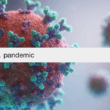
Anorexia nervosa is a serious mental health disorder characterized by an intense fear of gaining weight, leading to restrictive eating habits and excessive weight loss. It falls under the category of eating disorders, which are complex conditions influenced by a combination of genetic, biological, behavioral, psychological, and social factors. In this comprehensive guide, we will delve into the intricacies of anorexia nervosa, explore its symptoms, causes, and associated disorders like bulimia nervosa, and discuss effective health promotion strategies and disease prevention techniques.
Understanding Anorexia Nervosa: Symptoms and Causes
Anorexia nervosa manifests through a variety of physical, emotional, and behavioral symptoms. Individuals suffering from this disorder often exhibit a distorted body image, relentless pursuit of thinness, and a preoccupation with food, weight, and calories. Common symptoms include severe weight loss, refusal to maintain a healthy weight, excessive exercise, and denial of the seriousness of low body weight.
The causes of anorexia nervosa are multifaceted, encompassing genetic predispositions, environmental influences, psychological factors, and societal pressures. Genetics play a role, as individuals with a family history of eating disorders are at a higher risk. Moreover, societal ideals of beauty, cultural norms, and media portrayals of thinness contribute to the development of distorted body image and unhealthy eating behaviors.
Associated Disorders: Anorexia Nervosa and Bulimia Nervosa
Anorexia nervosa often coexists with other psychiatric disorders, with bulimia nervosa being one of the most common comorbidities. Bulimia nervosa involves cycles of binge eating followed by purging behaviors, such as self-induced vomiting or misuse of laxatives. Both disorders share similarities in terms of distorted body image and dysfunctional eating patterns, highlighting the need for comprehensive treatment approaches.
Health Promotion Strategies: Empowering Individuals and Communities
Effective health promotion initiatives play a crucial role in raising awareness, preventing, and addressing anorexia nervosa and other eating disorders. Public health campaigns aimed at promoting positive body image, healthy eating habits, and self-esteem can help combat societal pressures that contribute to the development of eating disorders.
Education and early intervention are paramount in promoting mental health and preventing the onset of anorexia nervosa. Schools, healthcare providers, and community organizations can collaborate to implement programs that promote body positivity, nutritional literacy, and resilience-building skills among children, adolescents, and adults.
Disease Prevention Techniques: Targeting Risk Factors and Protective Factors
Preventing anorexia nervosa requires a multifaceted approach that addresses both individual risk factors and broader societal influences. Targeted interventions should focus on enhancing self-esteem, fostering healthy relationships with food, and challenging unrealistic beauty standards. Encouraging open communication about body image and eating behaviors within families and communities can help create supportive environments that mitigate the risk of developing eating disorders.
Identifying and addressing early warning signs of anorexia nervosa is critical in preventing the progression of the disorder. Healthcare professionals play a pivotal role in screening individuals for eating disorder symptoms, providing psychoeducation, and facilitating timely referrals to specialized treatment services.
Treatment Modalities: Holistic Approaches to Anorexia Nervosa
Treating anorexia nervosa requires a comprehensive and individualized approach that addresses the complex interplay of biological, psychological, and social factors. Multidisciplinary treatment teams consisting of physicians, therapists, dietitians, and other healthcare professionals collaborate to develop tailored treatment plans for patients.
Evidence-based interventions for anorexia nervosa encompass nutritional rehabilitation, psychotherapy, medication management, and family-based therapies. Cognitive-behavioral therapy (CBT) and dialectical behavior therapy (DBT) are among the most commonly utilized psychotherapeutic approaches, focusing on challenging maladaptive thoughts and behaviors while enhancing coping skills and emotional regulation.
Challenges in Diagnosis and Identification
Anorexia nervosa presents unique challenges in diagnosis and identification due to the secretive nature of the disorder and the stigma associated with mental health issues. Healthcare providers must be vigilant in recognizing subtle signs and symptoms, conducting thorough assessments, and establishing trustful relationships with patients to facilitate early intervention and treatment.
Addressing Co-occurring Medical Complications
Anorexia nervosa can lead to severe medical complications, including electrolyte imbalances, cardiovascular abnormalities, and bone density loss. Treating physicians must address these co-occurring medical issues in conjunction with psychiatric interventions to ensure comprehensive care and minimize the risk of long-term health consequences for patients.
Empowering Recovery and Relapse Prevention
Recovery from anorexia nervosa is a challenging journey that requires ongoing support, guidance, and encouragement. Empowering individuals with coping strategies, relapse prevention techniques, and self-care practices is essential in sustaining long-term recovery and promoting resilience in the face of setbacks. Collaborative efforts between patients, families, healthcare providers, and support networks are instrumental in fostering a supportive environment conducive to healing and growth.
Cultural Considerations in Treatment
Cultural factors significantly influence the presentation, perception, and treatment of anorexia nervosa. Understanding cultural norms, values, and beliefs surrounding body image, food, and mental health is essential in delivering culturally sensitive and effective interventions. Tailoring treatment approaches to accommodate diverse cultural backgrounds and preferences enhances engagement and improves outcomes for individuals seeking recovery from anorexia nervosa.
Role of Family Dynamics in Recovery
Family dynamics play a pivotal role in the development, maintenance, and recovery from anorexia nervosa. Involving families in treatment planning, education, and therapy can strengthen support systems, improve communication, and facilitate healing within the familial unit. Addressing family dynamics, relational patterns, and interpersonal conflicts enhances the effectiveness of treatment interventions and promotes sustainable recovery outcomes for patients.
Community-Based Support and Advocacy
Community-based support groups, advocacy organizations, and online platforms play a vital role in raising awareness, reducing stigma, and providing peer support for individuals affected by anorexia nervosa. Engaging with community resources, participating in advocacy efforts, and connecting with others who share similar experiences fosters a sense of belonging, validation, and empowerment on the journey to recovery. Building resilient communities that prioritize mental health and support individuals affected by eating disorders is essential in promoting lasting change and well-being for all.
Conclusion: Empowering Communities for Healthier Futures
Anorexia nervosa is a debilitating disorder with far-reaching implications for individuals, families, and communities. By prioritizing health promotion and disease prevention efforts, we can empower individuals to cultivate positive body image, adopt healthy eating habits, and seek timely support for mental health concerns. Through collaborative efforts between healthcare providers, educators, policymakers, and the public, we can create a society that fosters resilience, acceptance, and holistic well-being for all. Together, let us strive towards a future where anorexia nervosa and other eating disorders are met with understanding, compassion, and effective interventions.



